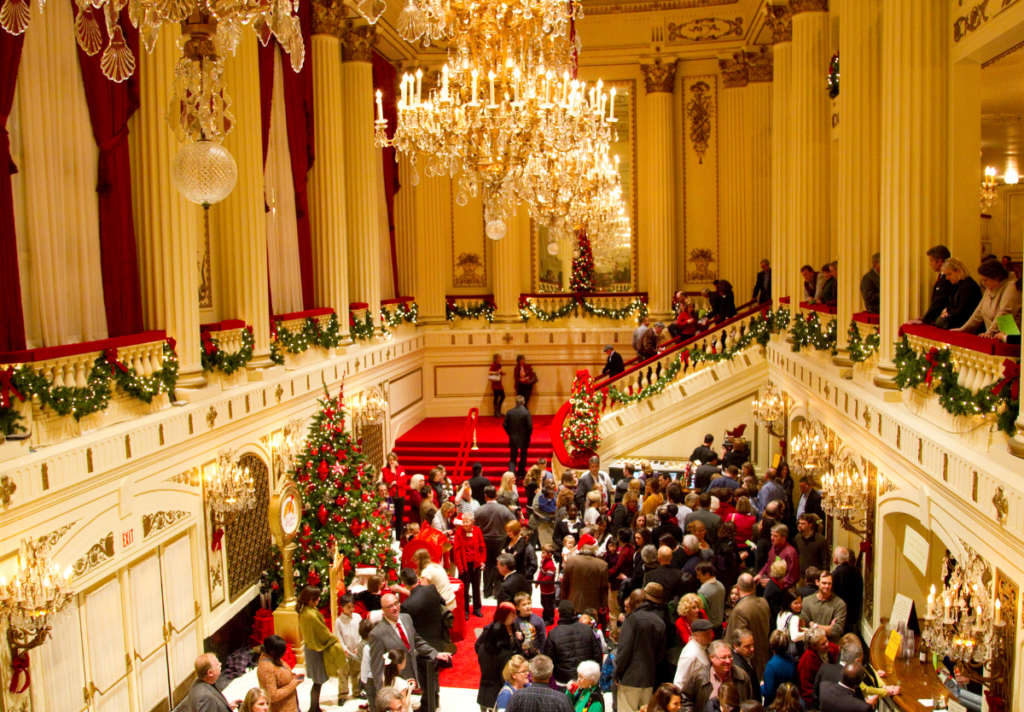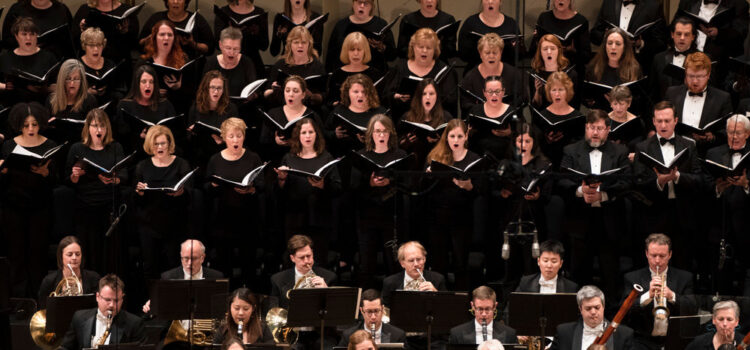By CB Adams
On the same first weekend of December 2022, the New Yorker magazine published a cartoon depicting a couple in a theater, clutching programs as others around them departed. The husband says to the wife, “Whose idea is it to start with the ‘Hallelujah’ Chorus?” This coincided with the St. Louis Symphony Orchestra and Chorus’s performances of one of George Frideric Handel’s masterworks, his oratorio “Messiah.”
I generally do not “review” an audience’s engagement with a performance, but with the New Yorker cartoon in mind, I’m safe stating that the respectful and enthusiastic audience would have stayed for all of score’s 57 numbers, even if rearranged with an opening “Hallelujah.”
Although originally intended for the Christian season of Lent, “Messiah” has morphed into a staple of high culture Christmas entertainments, along with Tchaikovsky’s “Nutcracker” and Dickens’s “A Christmas Carol.”
But seasonal ubiquity shouldn’t diminish the sheer beauty of this music experience, which Handel feverishly composed in just 24 days in 1742. I have no proof, but I am convinced that the compressed composition process contributes to the cohesive, “of a piece” nature of “Messiah.” Artistic constraint often enhances creativity.

The SLSO’s performance on Dec. 4, under the baton of guest conductor Laurence Cummings proved that “Messiah” when well-performed continues to deserve its place as one of the most famous, canonical and widely shared pieces of music – classical or otherwise. Cummings is a British conductor and specialist in historical performance, especially the Baroque era. At Powell Hall, he led the orchestra and chorus from one of two center stage harpsichords. The other was played by Mark Shuldiner. The excellent-as-always chorus was led by the also-excellent guest choral director, Patrick Dupré Quigley.
There’s room in Handel’s score for plenty of interpretation and emphasis. Cummings chose to elevate the score’s reverential Passion theme, which proved a welcome antidote to the holiday season’s usual predilection for exuberant celebrations. There was still plenty of that celebratory spirit during the stand up for the “Hallelujah” chorus and the robust final ovations.
The reverential was also evident in the way the four soloists, seated two to a side, approached the front of the stage with deliberate gravitas. The cadre of soloists were soprano Amanda Forsythe, countertenor Key’mon Murrah, tenor John Matthew Myers and baritone Jonathon Adams. All were well-matched and well-attenuated with the orchestra and chorus. Of the four, Forsythe and Murrah were the most stylish and powerful, though this might partly be because of their respective parts. The voice of baritone Adams’s voice was muddled and lost a couple of times during his solos, especially at their beginnings, but this was not off-putting.
The SLSO’s 2022 interpretation of “Messiah” was the total package for a fulfilling performance that bundled the sheer beauty of the music, Handel’s incredible skill as a c composer, a well-aligned symphony and chorus and confident soloists. To borrow a phrase from another, Grinchier annual holiday treat, “Welcome Christmas. Bring your cheer.”


CB Adams is an award-winning fiction writer and photographer based in the Greater St. Louis area. A former music/arts editor and feature writer for the St. Louis Globe-Democrat, his non-fiction has been published in local, regional and national publications. His literary short stories have been published in more than a dozen literary journals and his fine art photography has been exhibited in more than 40 galley shows nationwide. Adams is the recipient of the Missouri Arts Council’s highest writing awards: the Writers’ Biennial and Missouri Writing!. The Riverfront Times named him, “St. Louis’ Most Under-Appreciated Writer” in 1996.

